Dance Show Preview: “I Love Quebrada,” a Portrait of a Marginalized Brazil
Choreographer Bastazin Uses Dance to Shed Light on Discrimination and Violence Against Afro-Brazilians and Other Minorities
When thinking of Brazilian dances, we often picture colourful feathers, and glittery G-strings—but one Brazilian choreographer wants to show the harsh realities behind the carnival fairy tales.
Raquel Bastazin, who is also the creative director and mastermind behind the show, left her hometown of São Paulo to settle in Montreal fourteen years ago, though she said she is still strongly connected to her culture.
“The situation [in Brazil] is very alarming when it comes to inequalities, racism, lack of opportunity, social slavery […] There’s an important part of the population that is stuck in conditions that prevent them from moving forward, and there’s a whole other side of society that doesn’t want to see that,” she said.
Last month, far-right candidate Jair Bolsonaro won the presidential election with 55 per cent of the votes. Bolsonaro led a polarizing campaign with openly racist, misogynistic, and homophobic rhetoric, which fuelled growing violence and fear across country.
But Bastazin said this problem isn’t new in Brazil.
“We’ve been building this kind of country for 500 years, but now we’ve reached ‘o fondo do poço,’ rock bottom.”
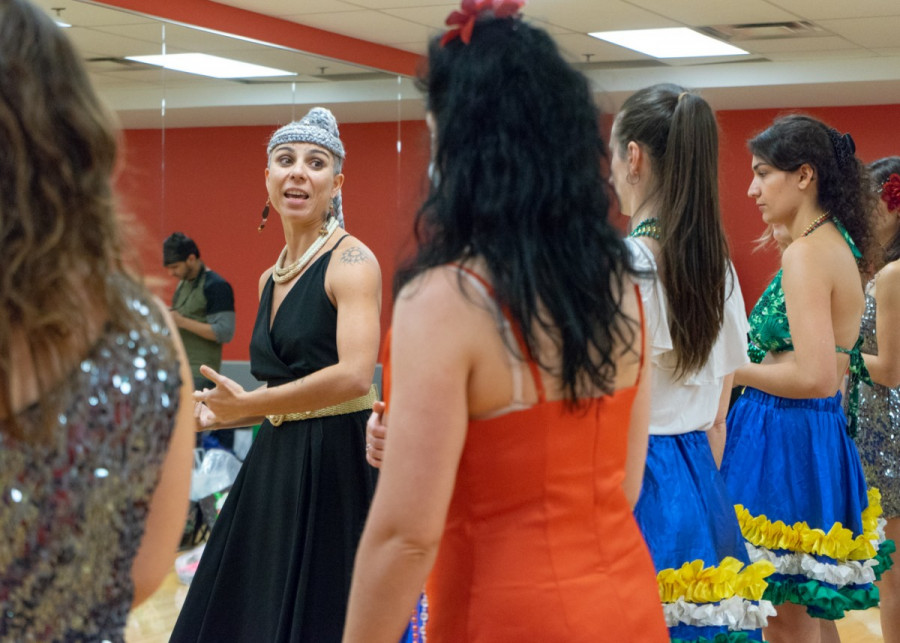
The recent election has created an apparent division in the Brazilian society. Bastazin even said that she became estranged from some members of her family. “For me it’s not a question of political belief anymore, it’s a question of core values.”
Bastazin described her show, I Love Quebrada as one “that denounces openly, without filter, that side of Brazil.” Though the show was already created when Bolsonaro was voted in, Bastazin says that his election intensified its meaning.
On Dec. 1, forty-eight dancers, four actors, including the son of Bastazin, 11 year-old Raphaël, and six musicians will shed light on the brutal realities of people from quebradas, commonly known as favelas—historically poor and marginalized neighborhoods surrounding major urban centres that emerged as a result of mass migration and the end of slavery in the 1800s.
“The term ‘quebrada’ comes from ‘quebrado,’ which means broken. In these neighbourhoods, everything is broken: the sidewalk is broken, the school is broken, the electricity poles are broken…”
In 2017 alone, 63,880 people were murdered in Brazil, according to a recent report by the Brazilian Forum of Public Security, 3 per cent more than the previous year.
“It’s a civil war,” Bastazin said, “but no one talks about it. I want to talk about it.”
Dance and theatre are intertwined in the play, Bastazin explained. Dialogues and mixed Brazilian dance styles illustrate religious intolerance, racism, prejudice, situations of extreme violence and fear that the community in the favelas, especially the Black population, endure on a daily basis.
“The choreography is created with a lot of research and concept.”
Bastazin wants to show every aspect of Brazil. “I cannot—as a dancer and teacher of popular Brazilian dances—entirely convey the culture without showing all the truths behind the beauty of the feathers and the movements. I have a responsibility and a commitment to my country,” she said.
Bastazin opened her dance school, Levanta Poeira, which translates to “kicking-up dust,” in 2007.
She said that educating her students about the historical origins of each style is crucial. “Samba and maracatu come from my ancestors, from Black people who’ve suffered, that were beaten, from women who were raped… I cannot only take the beauty at the surface of this culture and sell it, I have to give back to my community and this is my way of giving back.”
“It’s a civil war [in Brazil], but no one talks about it. I want to talk about it.”— Raquel Bastazin
Bastazin said I Love Quebrada represents the creativity and resilience of the people from quebradas, who, despite all the oppression they face, still celebrate life.
“Brazil is not represented by five days of carnival in Rio de Janeiro. Brazil is a huge country with various culture differences, languages, and styles, which is what I bring in my teaching and in this show.”
The production includes nearly 140 costumes, all handmade from recycled materials.
“The feathers are made from recycled plastic bottles and our headpieces are made from cans that were cut and decorated one by one,” she explained.
Bastazin said it was for ecological reasons, but also “to feel, incorporate and symbolize this population who has to be resourceful to survive.”
In Brazil, each samba school has a “barracão,” a sort of warehouse where seamstresses and mechanics fabricate all the costumes and floats for the carnival. “We developed our own ‘barracão’ in Montreal, where each Saturday we gathered to create our costumes,” Bastazin said with a smile.
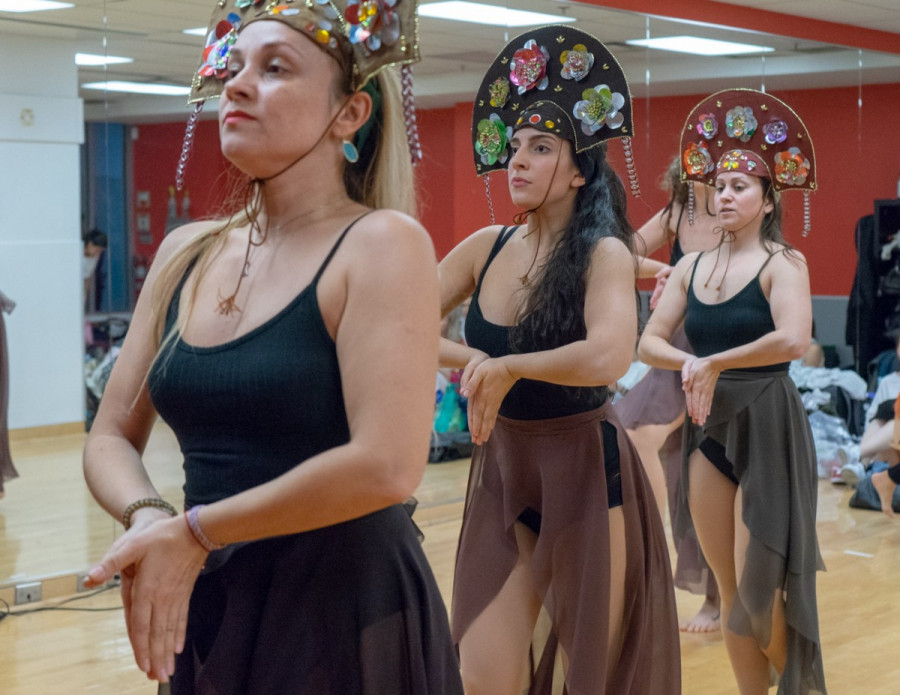
Bastazin said that she hopes the audience will immerse themselves in the performance. “Just like in Brazil, a week of carnival is a week when you donate yourself entirely to this inexplicable entity. We give our body and soul to follow this wave. In Portuguese we say, ‘a lavagem do espírito,’ a sort of catharsis.” She also hopes to bring consciousness about Brazil’s precarious realities.
I Love Quebrada // December 1, 2018, at 8 p.m. @ the Gesù Theatre // Tickets are $30.

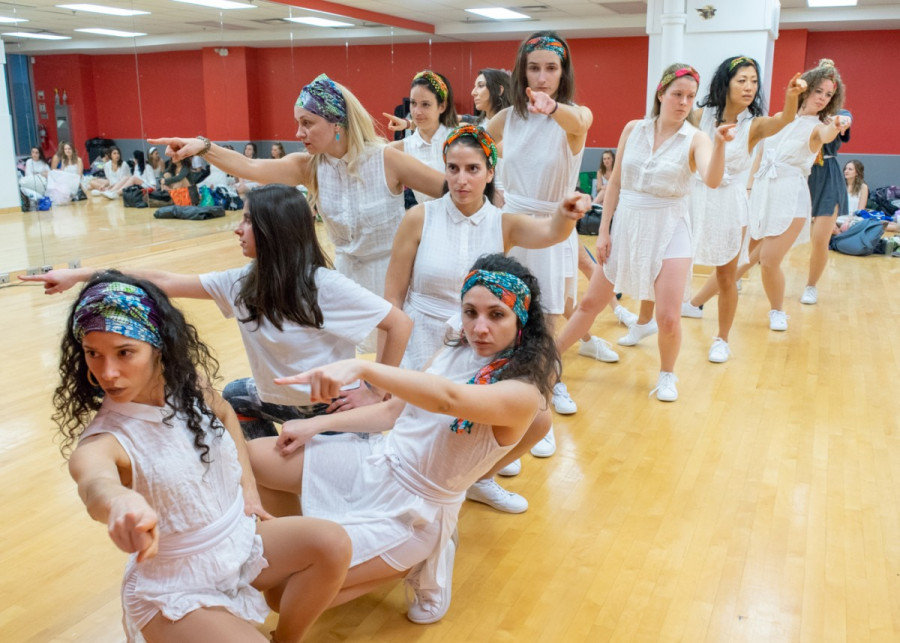
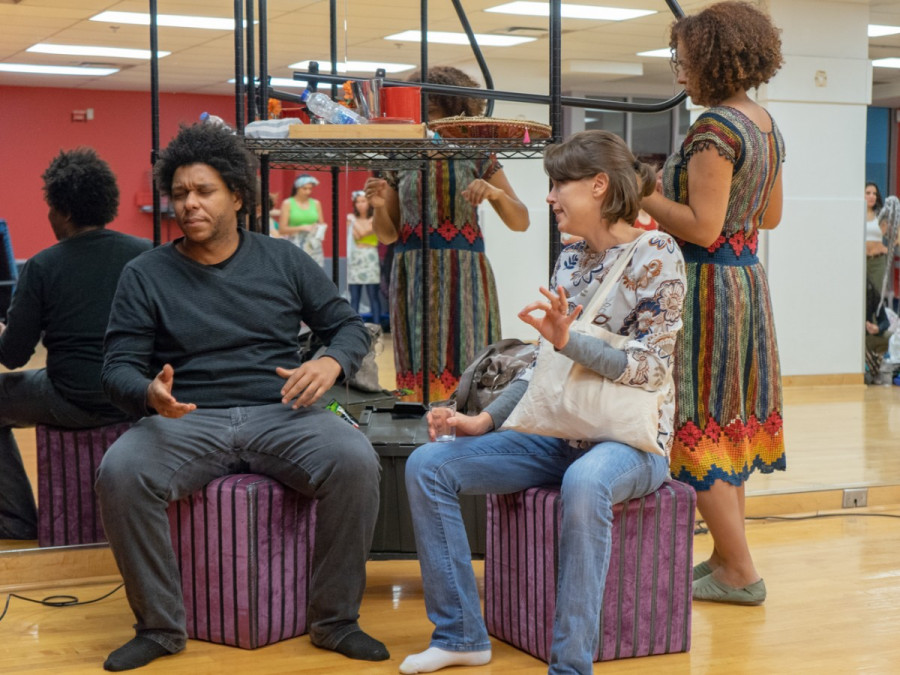


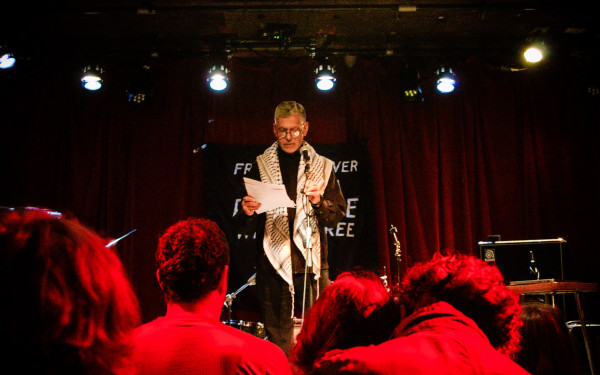
_600_375_90_s_c1.jpg)
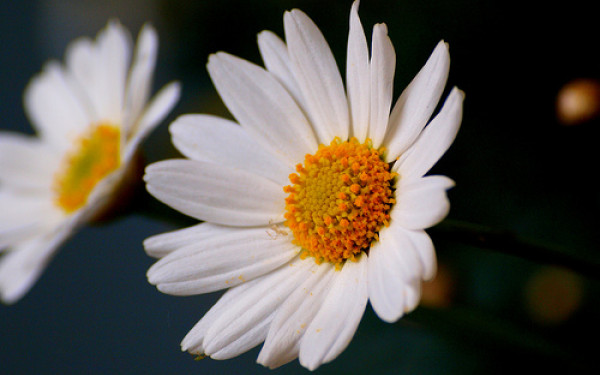
_1_600_375_90_s_c1.jpg)